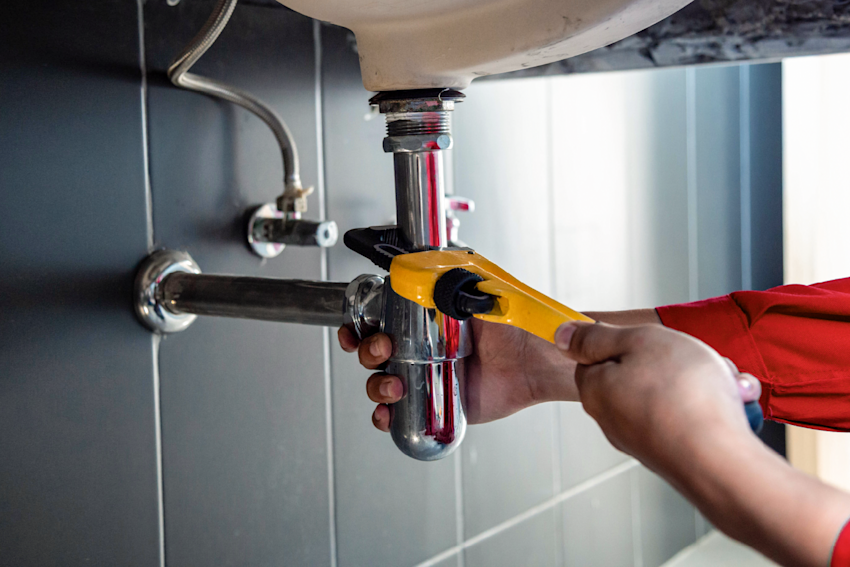
How to Find and Fix Leaks in Your Home
Think about all the different ways you and your family use water every day. From showering to washing hands, to brushing teeth, to cooking, watering houseplants, and – of course – drinking, water is an essential part of our everyday lives. That’s why it’s important to make sure that your access to running water isn’t secretly causing problems somewhere in your home.
The average household leaks nearly 10,000 gallons of water a year, according to the EPA – that’s enough water for 300 loads of laundry! Leaks can drain your wallet, whether it’s money wasted on high water bills or paying to fix water damage. While a home insurance policy from Farm Bureau Insurance of Tennessee can help with certain water damage to your home, it’s best to be proactive in fixing leaks. This Fix a Leak Week, let’s discuss how to detect and repair small leaks – and when it’s time to call a professional.
How To Find a Leak
There are a few simple ways to check for leaks in your home, and they don’t require any plumbing experience.
Inspect your utility bill. Your water bill can provide clues about whether you have a leak or not. If you notice unusual spikes in your water usage month to month, that may be a sign of a leak.
Check your water meter. Take a reading of your water meter when no water is being used, such as after everyone in your family is ready for the day. After two hours, your meter should read exactly the same. If it doesn’t, you probably have a leak.
Conduct a toilet test. Time to break out the food coloring – yes, really! Put a few drops in your toilet’s tank, and if after 10 minutes you see color in the bowl, your toilet has a leak. No matter your results, be sure to flush the toilet so the food coloring doesn’t stain it.
How To Fix a Leak
So, you’ve detected a leak in your home. The most common types of leaks come from worn toilet flappers, dripping faucets, or other leaking valves. If you determine that your leak is coming from your toilet, faucet, or showerhead, you may be able to fix it yourself with some simple tools and hardware. Consider consulting your local hardware or home improvement store for tips and help finding the parts you need.
If you can’t locate the source of the leak, are unable to fix it yourself, or don’t feel comfortable making the repairs on your own – that’s OK; that’s what licensed plumbers are for. Talk to friends and family or look online for a recommendation for a local, reputable plumber to help you.
One last tip for Fix a Leak Week? Make sure your home is protected by checking that your home insurance policy is up to date and provides all the coverage you need. Talk with a Farm Bureau Insurance of Tennessee agent today.
